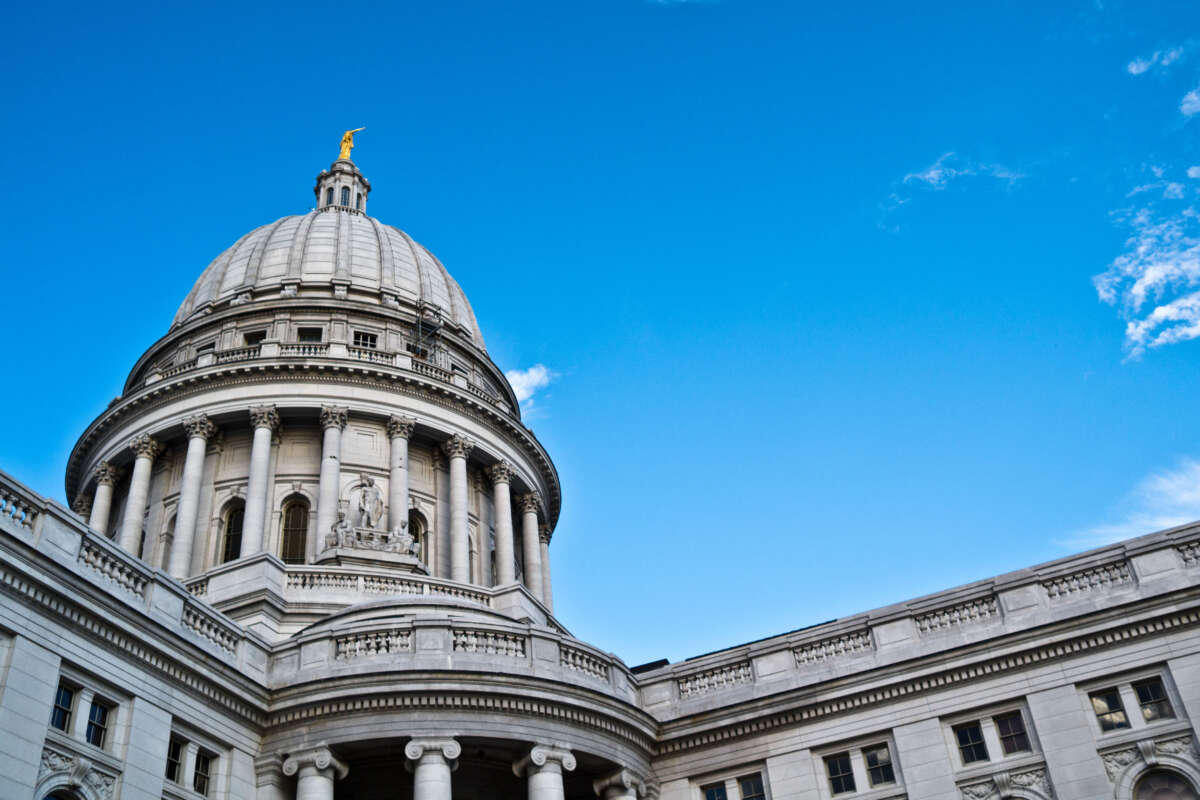Support justice-driven, accurate and transparent news — make a quick donation to Truthout today!
On Tuesday, members of the LGBTQ+ Caucus in the Wisconsin state legislature announced two resolutions aimed at keeping marriage equality intact in the state, including one that would remove a state constitutional amendment barring same-sex marriage that is still technically on the books.
The constitutional amendment — which is currently unenforceable due to the Obergefell v. Hodges Supreme Court ruling in 2015 — was passed into law in 2006, after voters approved of a proposal that banned same-sex marriage and similar (but not equal) legal recognitions like civil unions.
Like the rest of the U.S., however, residents of the state soon changed their views on marriage equality, with a poll from 2022 demonstrating that nearly three-quarters of voters (72 percent) now favor it, with only 19 percent opposed to the idea.
The amendment was deemed unconstitutional in the Obergefell decision. However, that ruling did not do away with the state amendments and legislation that still remain unenforceable law throughout the country.
In response to fears over the possibility that a deeply conservative Supreme Court could overturn Obergefell (with at least one justice, Clarence Thomas, openly advocating for a reexamination of the ruling), Congress passed the Respect for Marriage Act last year, which President Joe Biden signed into law. The statute keeps in place some federal protections for same-sex marriages — however, it doesn’t codify marriage equality across the country, meaning states with anti-marriage equality laws still in place (35 in total) would revert to them if Obergefell was overruled in the future.
The Wisconsin legislative LGBTQ+ Caucus announced this week, on the anniversary of the Respect for Marriage Act, that it would introduce two measures to ensure that the state wouldn’t revert to previous discriminatory practices if that happened.
“It is long past time for our state constitution and our state statutes to reflect that marriage equality is the law of the land,” a statement from the caucus said.
The caucus put forth two proposals. The first would undo the constitutional amendment still on the books in Wisconsin, requiring passage of a resolution in two consecutive sessions of the state legislature plus a vote in support of the measure by voters in the state. The second piece of legislation would update statutory language on Wisconsin marriage laws to reflect marriage equality standards.
The possibility of either of the two proposals passing — despite clear support from residents in the state — is doubtful, given that both houses of the state legislature have a Republican majority due to extreme partisan gerrymandering. Still, LGBTQ+ Caucus member state Sen. Mark Spreitzer (D) expressed optimism that enough Republicans would come to their senses on the issue.
“We have had some Republican support for implementing marriage equality in the past, obviously it has not become law in past sessions, but we will continue to work with our Republican colleagues. We know that this is becoming an issue that can be bipartisan,” Spreitzer said.
Lucy Ripp, communications director for the progressive organization A Better Wisconsin Together, commended lawmakers for introducing the proposals.
“The freedom to marry who we love is a basic freedom that should not be denied to anyone. As we commemorate the anniversary of the Respect for Marriage Act, we are thrilled to see lawmakers at the state level taking proactive measures to strengthen and protect the rights of LGBTQ+ Wisconsinites,” Ripp said.
Speaking against the authoritarian crackdown
In the midst of a nationwide attack on civil liberties, Truthout urgently needs your help.
Journalism is a critical tool in the fight against Trump and his extremist agenda. The right wing knows this — that’s why they’ve taken over many legacy media publications.
But we won’t let truth be replaced by propaganda. As the Trump administration works to silence dissent, please support nonprofit independent journalism. Truthout is almost entirely funded by individual giving, so a one-time or monthly donation goes a long way. Click below to sustain our work.
